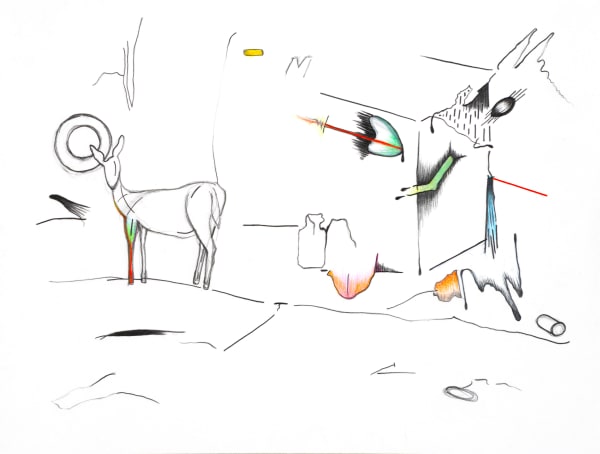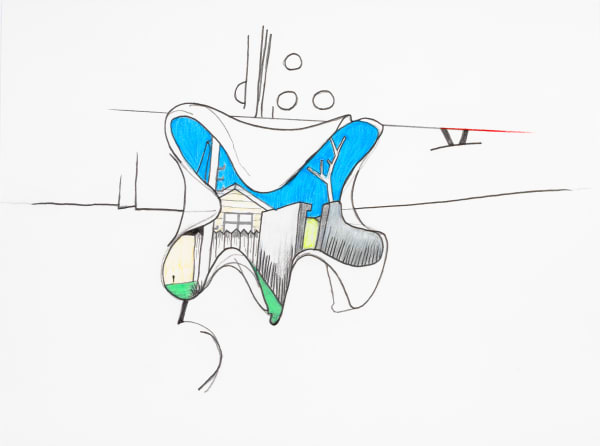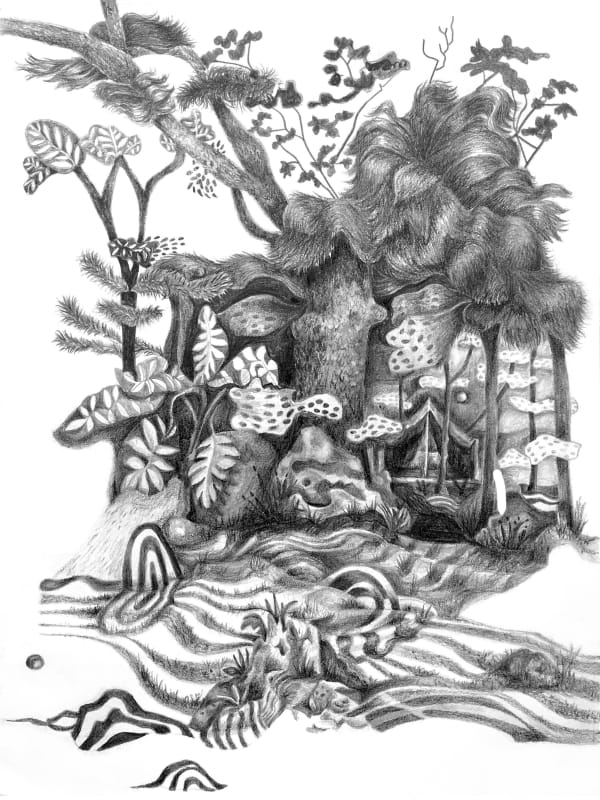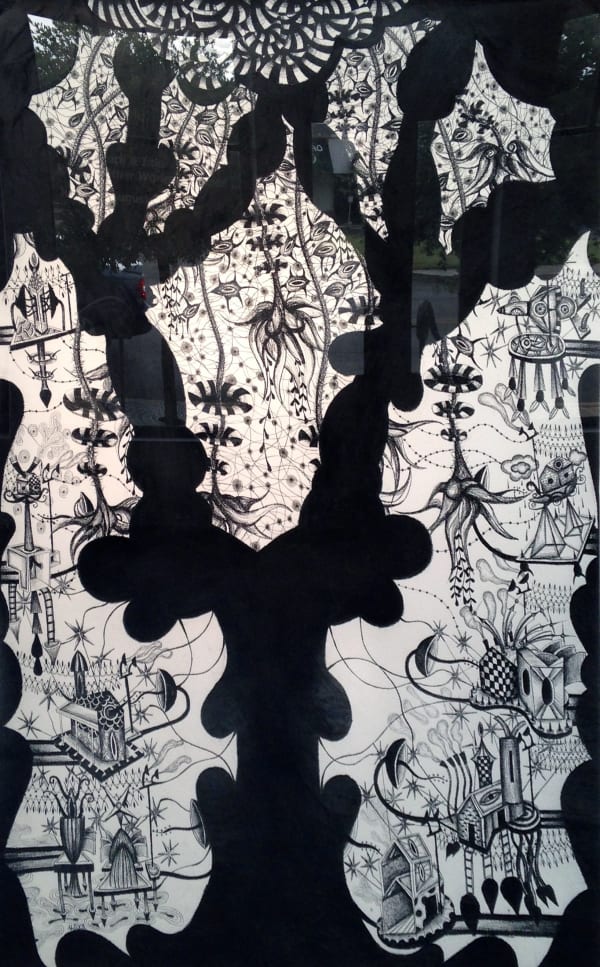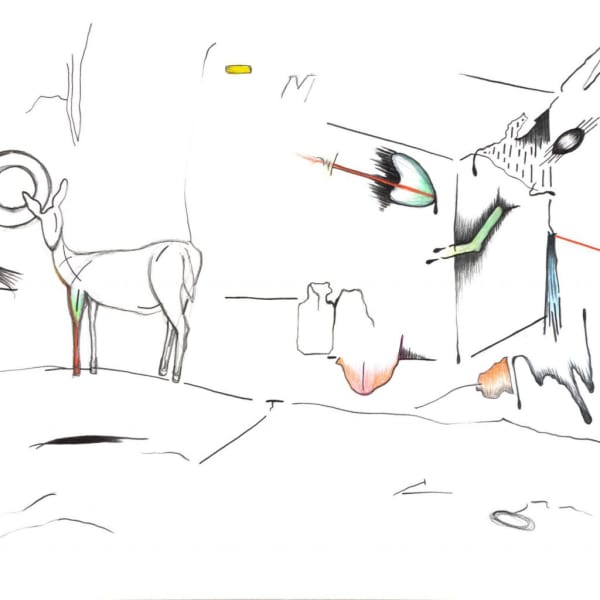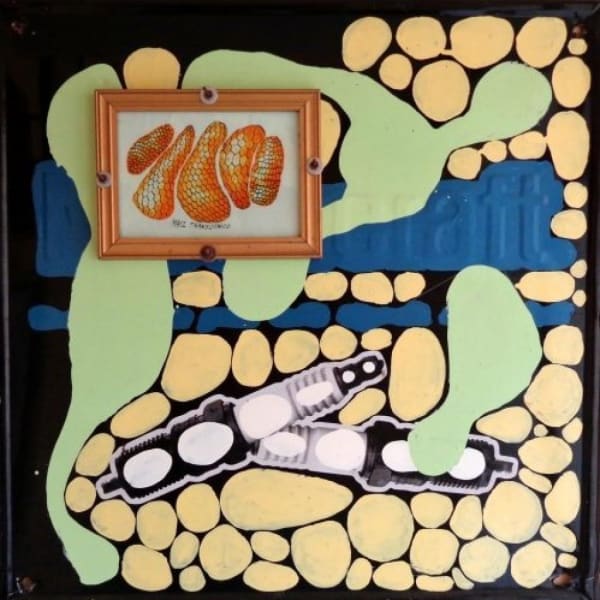Hills Snyder American, b. 1950
Hills Snyder was born in Lubbock and lives in San Antonio, Texas. He has been a hardware store clerk, commercial greenhouse worker, janitor, picture framer, paper products factory worker, bookseller, french-fry cook, groundskeeper, bean factory worker, furniture maker, ice factory core puller and for fifteen years, a house framer and carpenter. Since the mid-eighties, he has worked many jobs in and around the visual arts including trucking, crate making, exhibition design, curating and writing. Until 2019 he was a Senior Lecturer at the University of Texas, San Antonio.
In the seventies and eighties, he was known for labor-intensive constructions and drawings featuring mythic narratives laced with dark humor and deceptive whimsy. His decades-long use of Plexiglas as a material came to the front in the nineties with projects in which a large variety of images/objects were maneuvered into cohesive semi-site installations interacting with pre-existing architectural elements. For the past two decades, his work has taken a turn toward performance and the interactive, using any media appropriate to the project at hand. In 2005, he created the "Book of The Dead" as a resident artist in the International Artist Residency program Artpace, San Antonio. This work was the beginning of an ongoing series of exhibitions linked by the verses of Song 44, a ballad written by the artist in 1997. Other projects in this series include "Misery Repair Shoppe" (2006), "All Good Children" (2008) and "Casual Observer/Causal Observer" (2010).
October 2010 saw Snyder spend nine days on the road replacing objects gathered by curator Jens Hoffmann for the Artpace exhibition "On The Road." This action retrieved the objects contextualized by Hoffmann as stereotypically regional and returned them to their original or near-original locales, hence salvaging them from the sealed narrative projected by the curator. To complete this task Snyder drove Hoffmann’s route in reverse, driving throughout Texas and Eastern New Mexico. A few highlights included a Stetson placed on the grave of Blind Lemon Jefferson, pouring back sand “stolen” from White Sands, New Mexico, and a 1950s era Lone Star beer can was donated to the permanent collection of the San Antonio Museum of Art, which was converted in the late seventies from the historic Lone Star Brewery that the can came from over half a century ago. This piece, titled "One Kind Favor," was the seed for subsequent road works "Altered States," (2016 and ongoing) and "Your Nowhere Is My Somewhere. See you there," (2017).
-

Hills Snyder: Altered States (Part Four)
November 14, 2018 - January 19, 2019 San AntonioRuiz-Healy Art presents its first solo-exhibition for the work of Hills Snyder. The exhibit features 120 drawings based on photographs that focuses on subjectivity, autonomy, independence, and place.Read more -

Why is the Sky Blue?
November 18, 2015 - February 13, 2016 San AntonioRuiz-Healy Art presents Why is the Sky Blue? A group exhibition with Jesse Amado, Laura Anderson Barbata, Cecilia Biagini, Nate Cassie, Aníbal Delgado, Hersúa, Cisco Jimenez, Magali Lara, Chuck Ramirez, Guillermo Santamarina, Hills Snyder, and Pilar Villela. Including works that date back to the 1970's, this exhibition uses abstract works to focus on issues over looked in the modern tradition of abstract art.Read more
-
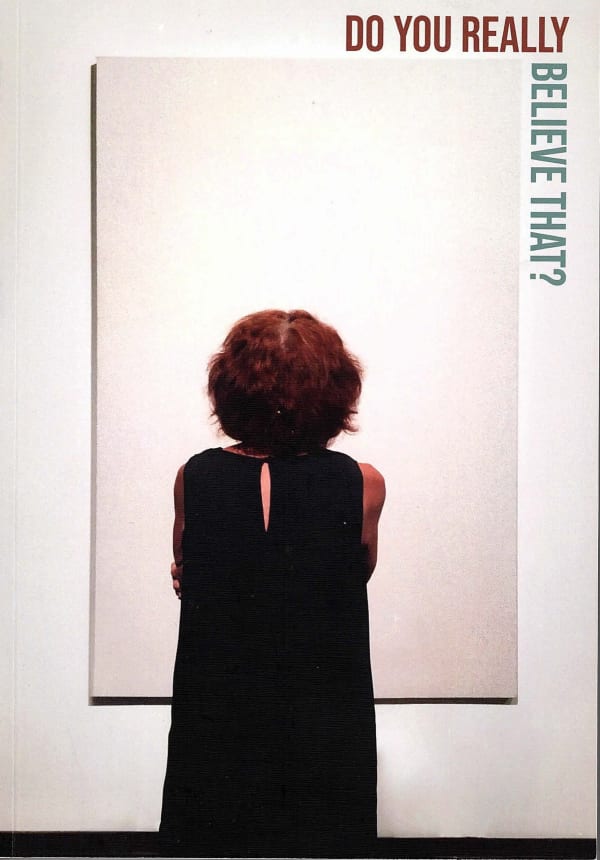
Do you really believe that?
Essays by Jennifer Hope Davy, Michael Corris, Frances Colpitt, Katherine Kanjo, Michael Delgado, Tulsa Kinney, Annette DiMeo Carlozzi, Anjali Gupta, and Patricia Ruiz-Healy 2025Softcover, 245 pagesRead more
Publisher: The University of Texas at San Antonio
ISBN: 979-8-9904565-0-1
Dimensions: 9x6x1 in -
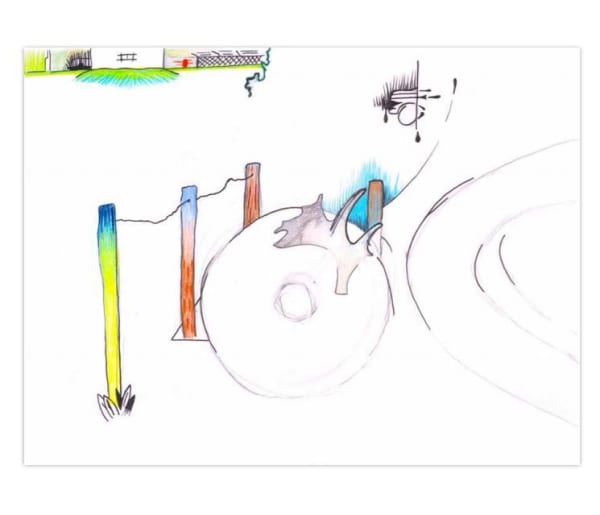
Hills Snyder: Altered States (Part Four) I Ruiz-Healy Art
Essay by Neil Fauerso 2018Hardcover, 40 pagesRead more
Publisher: Ruiz-Healy Art
ISBN: 1518458017
Dimensions: 10 x 8 in -

Why is the Sky Blue? I Ruiz-Healy Art
Jesse Amado, Chuck Ramirez, Cecilia Biagini, Nate Cassie, Cisco Jiménez, Hills Snyder Essay by Octavio Avendaño Trujillo, 2015Paperback, 42 pagesRead more
Publisher: Ruiz-Healy Art
ISBN: 1364513900
Dimensions: 8 x 10 in


